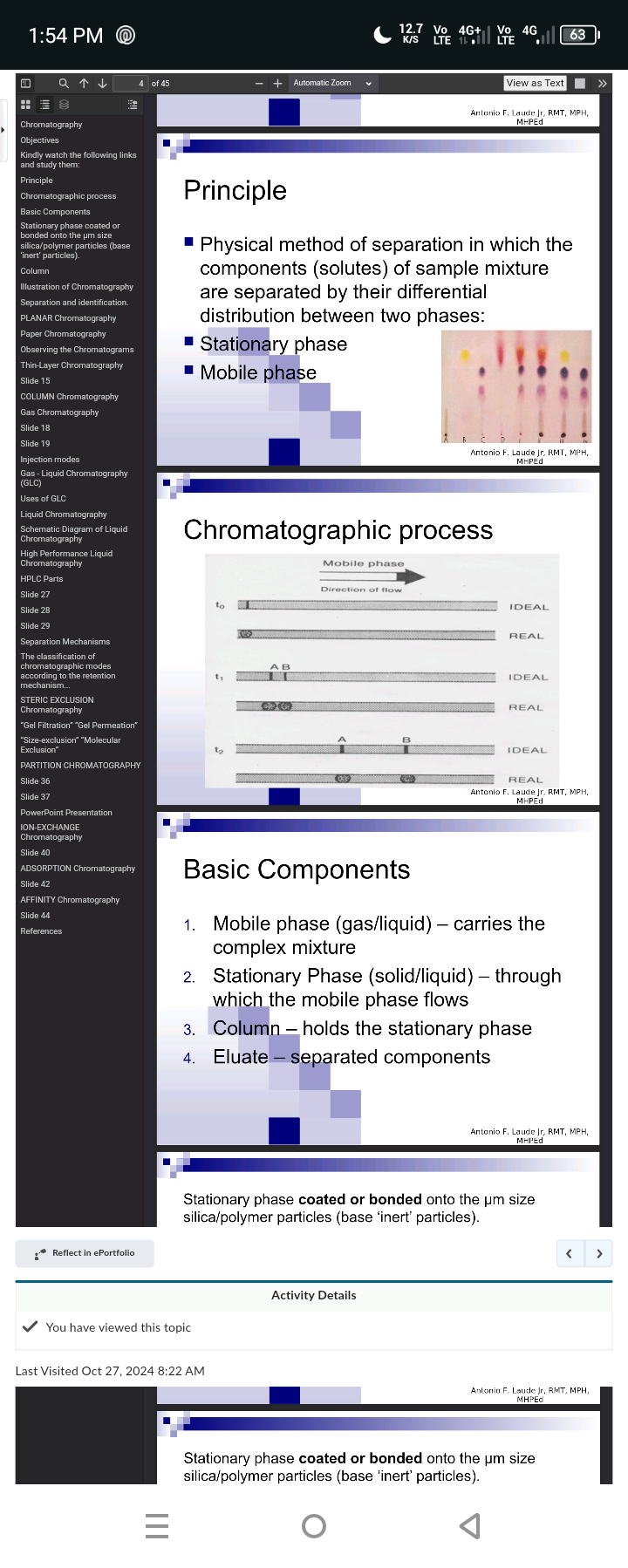What are the principles and basic components of chromatography?

Understand the Problem
The question is about the principles and components of chromatography, specifically the roles of the stationary and mobile phases, and how they function in separating components of a mixture.
Answer
Principles: separation via stationary and mobile phases. Components: mobile phase, stationary phase, column, eluate.
The principles of chromatography involve separating components based on their differential distribution between stationary and mobile phases. Basic components include the mobile phase, stationary phase, column, and eluate.
Answer for screen readers
The principles of chromatography involve separating components based on their differential distribution between stationary and mobile phases. Basic components include the mobile phase, stationary phase, column, and eluate.
More Information
Chromatography is crucial in analytical chemistry, enabling the separation, identification, and purification of components within a mixture.
Tips
A common mistake is not selecting the appropriate phase interactions based on the polarity of the components being separated.
Sources
- Principles of chromatography | Stationary phase - khanacademy.org
- 6.1: Basic Principles of Chromatography - Chemistry LibreTexts - chem.libretexts.org
AI-generated content may contain errors. Please verify critical information